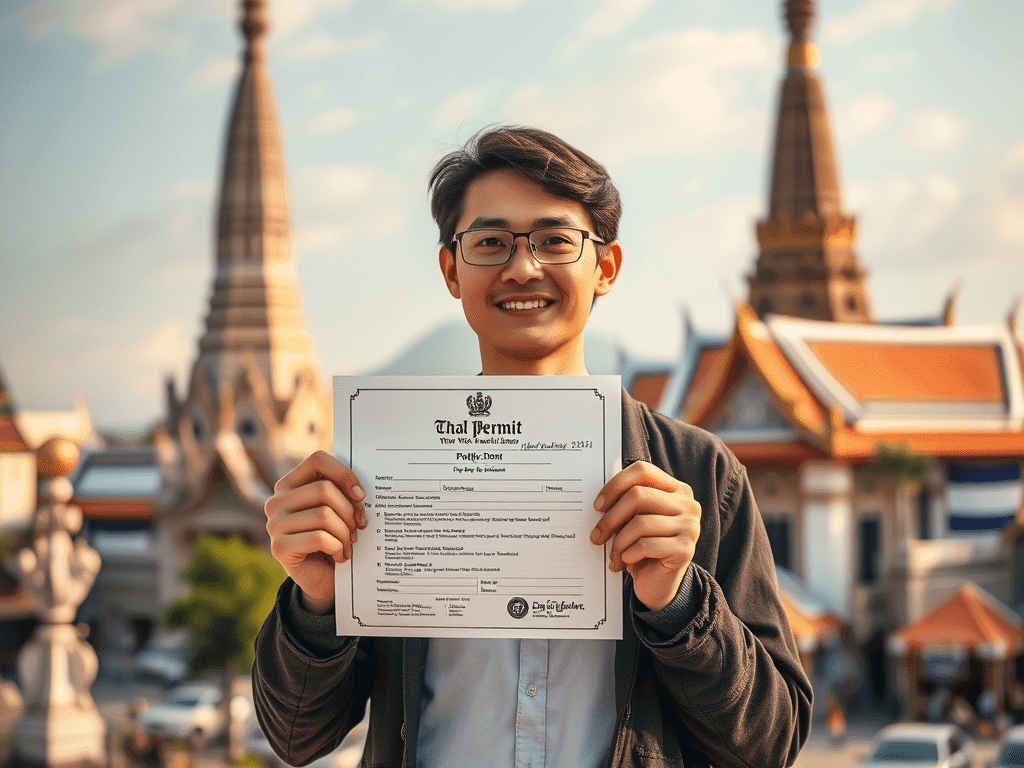How to get a business-type non-immigrant visa in Thailand?
1. Understand the Types of Nonimmigrant Visas for Business
Thailand offers different types of non-immigrant visas, but for business, the two main types are:
Type “B” Visa (Non-Immigrant Business Visa ): This visa is intended for individuals who wish to work, establish or run a business in Thailand, or for employees of a foreign company doing business in Thailand.
“O-A” (Non-Immigrant Long Stay) Visa : This visa is for expats or retirees who want to stay in Thailand for a long time, but it is not specifically for business.
2. Prepare the necessary documents
Before applying for a non-immigrant business visa, you need to gather several essential documents. Here are the documents generally required for this type of visa:
Valid passport : It must be valid for at least 6 months after the date of your application.
Visa Application Form : To be completed and submitted when applying. You can get this form from the Thai embassy or consulate or download it from their website.
Recent photographs : Often, one or two passport-style photos are requested.
Invitation letter or employment contract : If you work for a company in Thailand or intend to work for a Thai company, you must provide an invitation letter from that company. If you are an entrepreneur, you must provide proof of the company’s activity (business license, company registration, etc.).
Proof of funds : Some embassies or consulates require proof that you have sufficient funds to cover your stay in Thailand. This can be a bank account statement.
Business documents : If you’re coming to run a business, you’ll need to provide documents related to the business, such as the business registration certificate, articles of association, and tax ID.
Round-trip airfare or proof of a travel itinerary: This shows that you intend to leave Thailand after your stay.
3. Apply for a visa
A. Apply to the Thai embassy or consulate
Once you have gathered all the documents, you can apply for a nonimmigrant visa at the Thai embassy or consulate closest to your home. The procedure may include:
In-person application submission : Some embassies or consulates will require you to submit your visa application in person, while others will allow a submission by mail.
Visa Fee : The amount of the visa fee varies depending on your country of residence and the embassy. You will usually have to pay this fee when you apply.
B. Online Application (if applicable)
Some Thai embassies and consulates offer the option to apply online, especially in the case of tourist visas. However, for a business visa, it depends on the embassy or consulate. So, it is recommended to check if this option is available for you.
C. Maintenance (if necessary)
An interview may be requested by the embassy or consulate. It depends on the specific circumstances and requirements of each country. If so, you will be informed of the procedure.
4. Obtain the visa and prepare for your arrival
Once your application is approved, you will receive your visa, which is usually valid for a period of 3 months. This visa allows you to stay and work in Thailand temporarily.
Visa Extension
After you arrive in Thailand, it is possible to extend your non-immigrant visa if necessary. Extensions can be obtained for a period of 6 to 12 months, depending on the nature of your visa and business activities in Thailand.
Extensions are usually done through the Thai Immigration Bureau. You will need to provide additional documents, such as proof of work or documents related to your business in Thailand.
5. Work and Business in Thailand: What You Need to Know
When you get a business-style nonimmigrant visa, you can work for a Thai company or start your own. If you plan to start a business, you will need to follow local laws and register with the relevant authorities, such as the Department of Business Development (DBD).
A. Work Permit
If you want to work for a company in Thailand, you will need a work permit, which the company will need to obtain on your behalf. The requirements for obtaining a work permit include verifying the qualification of the position and meeting the quotas of foreign workers.
B. Compliance with local laws
As a business resident, it is essential to comply with all local laws and regulations, including those relating to taxation, immigration, and employment law.
Conclusion: Getting a Nonimmigrant Visa for Business in Thailand
Obtaining a non-immigrant visa for business in Thailand may seem complex, but by following the steps and preparing your documents correctly, the process can go smoothly. It is crucial to fully understand the specific requirements of the Thai embassy or consulate in your country and make sure that you meet all the necessary requirements.
If you intend to work in Thailand or run a business in the country, a business visa is a great solution. Make sure you have all the up-to-date information and consult with Thai authorities or an immigration expert to help you make your application successful.




